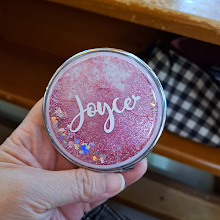Recognizing the signs of stress
Did you find the past two years to be challenging and stressful? Have you been experiencing any of these feelings, thoughts or behaviors lately such as feeling troubled or threatened, struggling to focus, crying often, getting angry easily, having difficulty sleeping or feeling sad, guilty, worried, or very tired?
In times of uncertainty when things are so hard during the pandemic,
stress is one sign that your mental health might be suffering.
Maintaining a healthy mind and building resilience
Mission 4 is about staying mentally healthy during COVID-19 by maintaining a healthy mind and building resilience. This week I commit to staying mentally healthy during COVID-19 and support the well-being of people around me by taking regular breaks for myself to recharge mentally and reset my mood so that I can have the necessary emotional quota to listen to people around me.
What can we do to maintain a healthy and resilient mind?
Here are some of the many documented ways to stay mentally healthy:
- Limit the time you spend reading stressful news and read and share good stories instead.
- Talk to someone you trust.
- Stay connected to your friends and family, especially those who may be far away or living alone.
- Watch a movie or read books, exercise, make crafts or catch up on things you haven't had the time for.
- People with preexisting conditions should keep taking any medication you are on, keep in contact with your health care worker, and draw on the skills you have used in the past to manage your feelings and cope.
- Practice grounding exercise to reduce stress, improve your well-being, and cope with difficult thoughts and feelings.
- Get help from a professional if you start feeling very overwhelmed or are not able to function as normal. Reach out to your family doctor, local healthcare services or a social worker. Talk to your family, friends or another trusted person in your community if you need help finding a service. If you can't see someone in person, there may be telephone based or remote options available.
Why is taking breaks important?
For me, I'm a big fan of taking regular breaks when things seem to have become overwhelming.
According to The Wellbeing Thesis, micro-breaks, lunchtime breaks and longer breaks, have all been shown to have a positive relationship with well-being and productivity. Studies have found that breaks can reduce or prevent stress, help to maintain performance throughout the day, and reduce the need for a long recovery at the end of the day.
Social breaks or interactions, such as chatting with your peers allow you to share your experiences and feel part of a group during mini-breaks.
I have kind of mastered the art of taking breaks at work and off work because I'm an easily stressed-out person. First, I have identified my trigger points, for example traffic jams. So I will tune in to either BFM or Spotify without fail during my daily commute to work. By doing so, I'm taking a break from the stress of driving.
I will also be taking walking breaks for 5-6 minutes every 2-3 hours when I'm at work. At 4:30pm or so, I will take a fruit break or tea break. True enough, I don't break down at work because by taking these breaks that I deserve, I'm maintaining a healthy, resilient mind that keeps me productive for a longer time.
By doing so, I then can have the necessary emotional quota to listen to people around me, be it my family, friends, or colleagues. Read more about this on my previous blog post, Returning to Normalcy.
If there's any consolation, the new relaxed SOPs effective 1 May 2022 should be happy news for everyone!
Related posts:
Be A Champion Against COVID-19
Mission 1: Sharing the facts & stop misinformation about COVID-19
Mission 2: Promoting a healthy lifestyle
Mission 3: Personal responsibility & self-monitoring
Mission 5: Supporting COVID-19 vaccination
Mission 6: Living with the virus

























No comments